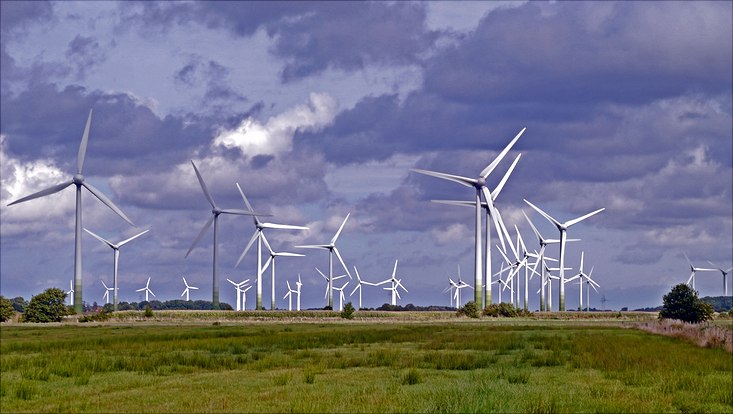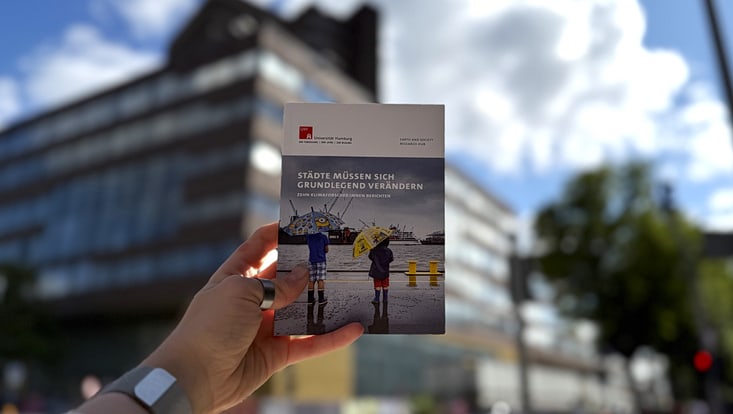Warning: emissions trading!More renewable energy doesn’t always mean less CO2
9 July 2019, by Dr. Johannes Jarke-Neuert

Photo: E.Westendarp/pixelio
In the first half of 2019, the percentage of energy production in Germany from renewable sources (44%) was higher than ever, as the Federal Association of German Energy and Water Industries (BDEW) recently reported. Consequently, the emissions of harmful greenhouse gases from energy production were roughly 15% lower in the same period: an encouraging step toward achieving our climate protection targets, according to Stefan Kapferer, Managing Director of the BDEW. Or perhaps not?
As admirable as these energy producers’ efforts are, they didn’t directly save even a single metric ton of CO2. This is due to the European Union Emissions Trading System (EU ETS), which all European energy producers are subject to: producers who avoid CO2 emissions no longer need their rights for the amount avoided (“allowances”) and sell them on the market. Other energy producers and the operators of industrial plants, for whom achieving CO2 reductions using technical means is too expensive, then purchase those allowances. At the end of the day, the only thing that changes is where the greenhouse gas is emitted, but not how much. Even worse: if we take into account all adjustments achieved by price changes in business sectors that aren’t subject to the EU ETS —and which are responsible for roughly half of all emissions in the EU—more eco-power can even lead to more emissions. This is just one example of how unilateral national actions in connection with the EU ETS can produce outcomes that are in direct contradiction of the best intentions and the self-defined climate protection targets 1,2,3.
The most direct way to reduce greenhouse-gas emissions in the context of the EU ETS is extremely simple: putting a cap on the emissions rights. This simplicity and the transparency it offers was one of the original reasons for introducing the instrument, nearly 15 years ago. Every reduction—openly and soundly defined as the equivalent in metric tons of CO2—represents a political decision at the European level. And that was precisely the idea.
The author
Dr. Johannes Jarke-Neuert is an economist in the Cluster of Excellence “Climate, Climatic Change, and Society” (CLICCS) at Universität Hamburg’s Center for Earth System Research and Sustainability (CEN).
Scientific paper: J. Jarke und G. Perino (2017). Do renewable energy policies reduce carbon emissions? On caps and inter-industry leakage. Journal of Environmental Economics and Management 84, 102-124.


